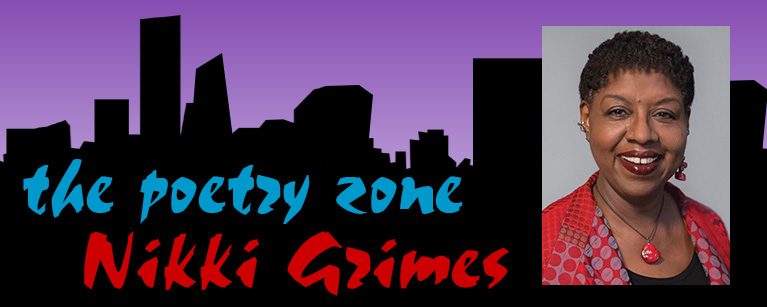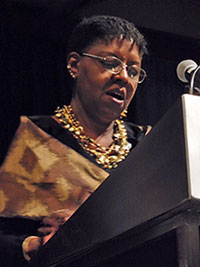When I was young, I was often bullied for “talking white.” That’s the way my precise enunciation, robust vocabulary, and polished use of the English language were categorized by others in the Black community. At the other end of the racial spectrum, several white teachers questioned the authorship of my compositions because they were “too well written.” As for my ability to speak, they would raise their eyebrows in utter surprise and say, “My! You are so articulate!” The left-handed compliment was never lost on me: as a Black girl, I was not supposed to be articulate. Whenever a white person would call me articulate, I’d think to myself, “and why wouldn’t I be?” English was, by far, my best subject, I practically lived in the library, had a grandmother who got on my case every time I mistakenly said, “Can I”, rather than “May I,” both my natural parents were avid readers, as were the foster parents I stayed with the longest, my mother had oratory skills, and my father was no slouch in that department, either. Chances were pretty good that some of that would have resulted in my being fairly well-spoken. Just saying.
I went on to university, graduated with a degree in English, and a minor in African languages, won a Ford Fellowship to study in East Africa, and returned to the U.S. to begin building a writing career. Strangely enough, I continued to be frequently “complimented” on my ability to string words together in a pleasing fashion. Now, 40+ years into a respectable career as an author specializing in poetry, and as a speaker, I am, apparently, still astonishing white people with my ability to be articulate. And I’m not the only well-read, well-traveled, well-educated Black person singing this song.
In all the years that I have given keynotes at major conferences across the country and abroad, or shared panels with white authors, or spoken at book festivals and literary conferences, I can never once recall hearing a white author praised for being articulate, though most of them were. The difference, in case you haven’t caught on, is that they were expected to be articulate, so there was no obvious need to remark upon the fact.
Mind you, I wholeheartedly appreciate someone telling me following an in-person or virtual keynote, or panel presentation, that my words moved them deeply, or that I said something that made them see the world in a new way, or that my words were inspiring or even powerful, or that you found my word choice exquisite. (No one has actually said that last thing, but feel free!) Who wouldn’t love that? But that’s substantially different from “complimenting” an author and poet who makes her living as a professional wordsmith and speaker, by saying—always with a hint of surprise and emphasis on the last word—“You’re so articulate.” Imagine praising a tailor for sewing straight seams, or complimenting a surgeon for deftly handling a scalpel, or congratulating a lawyer for knowing the law, or applauding a minister for familiarity with Holy Scripture. Lord, give me strength!
Christine Mallinson, professor of language, literacy, and culture at the University of Maryland, Baltimore County, had this to say to Business Insider: “When a white colleague tells a colleague of color ‘You’re so articulate’ or ‘You speak so well,’ the remark suggests that they assumed the person in question would be less articulate—and are surprised to find out they aren’t.” Pause for a moment and take that in.
Black folk already navigate a world littered with loaded language, coded phrasing, and microaggressions. (And there’s a separate set of microaggressions women have to contend with that focus on things like body image, but that’s not my focus here.) “You’re pretty—for a black girl.” “Is that your real hair?” “Where are you actually from?” “You’re not like them.” “You’re good with your hands.” “Your English is so good!” (Yes, I’ve actually been told that.) Ouch!
There are always assumptions that I sublet my home, rather than own it, and that my nice car is a rental. When I step into the priority lane to board a plane at the airport, my right to occupy that space is frequently questioned. When I enter a clothing store, or a boutique of any kind, I am automatically followed around the premises, merely based upon the assumption—unspoken or otherwise—that I am there to steal, rather than purchase, merchandise—this no matter how meticulous my attire at the time. I won’t even begin to tell you the number of apartments I lost, back when I was a renter, simply because my skin is black. Occasionally, just for fun, I would have a white friend apply for an apartment after I’d been told it was no longer available. Every single time, the miraculously still available apartment was offered to that white friend. Sigh.
This is some of why being Black in America can be so damn tiresome. But I’m not about to give up my beautiful black skin, or the rich heritage of my people in the fields of science, mathematics, art, music, fashion, academia, sports, economics, entrepreneurship, medicine, literature, and beyond. Against all odds, Black people have survived and thrived in this country, and I stand among them.
I enjoy my work as a poet, author, and speaker, and hope to continue this work for some years to come. As always, I look forward to meeting fans virtually, or in person once it’s again safe to travel, and to gather at conferences and book festivals. I will welcome any warm, kind words you choose to share with me following my presentations. That said, let me be clear: if you continue to find it shocking that I’m articulate, might I suggest you ask yourself why. In the meantime, should the idea of praising any Black person for being articulate cross your mind, please consider instead telling us what our words have meant to you, how you have been moved or touched by them, or how our words have inspired, challenged, or lifted you up. Those are true compliments we’d be more than happy to hear, any day of the week.



